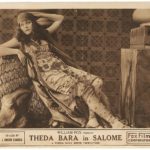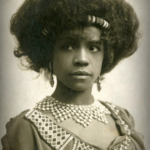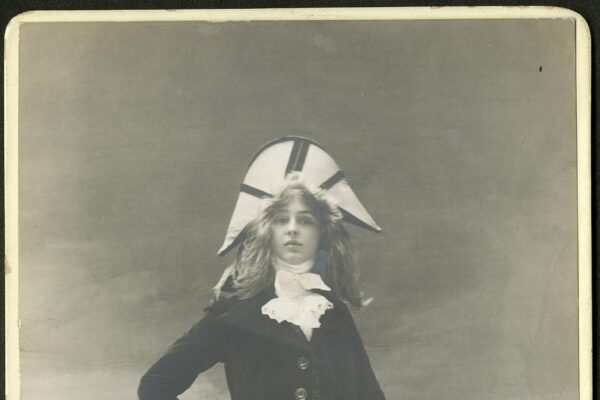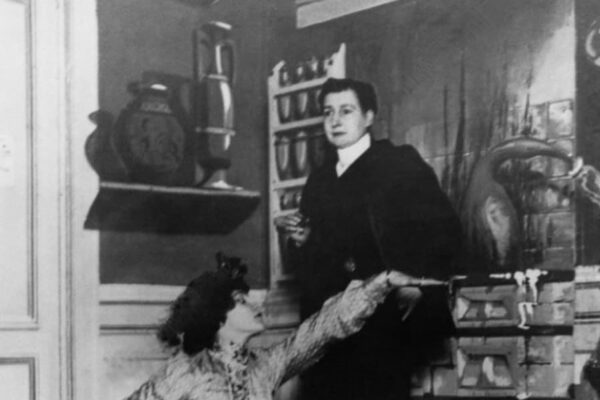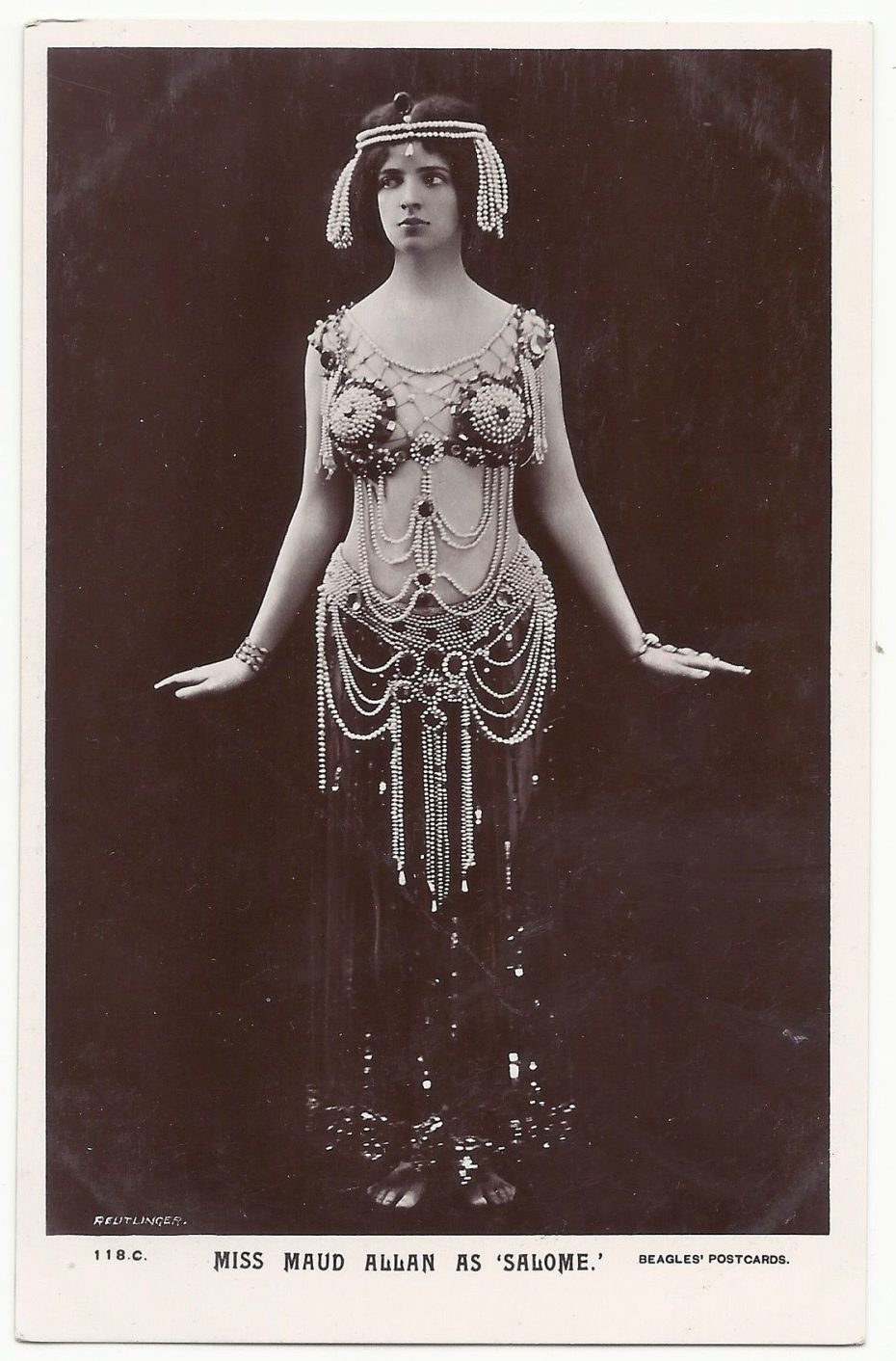
Maud Allan– beauty of the Belle Epoque, concert pianist-turned actress, dancer and choreographer and … sex-crazed lesbian spy for German wartime conspirators? Suddenly, my morning research into an Edwardian postcard just got a lot more interesting…
She was born in Maud Durrant in Canada in 1873 and moved to Germany at the age of 25 to study piano at a prestigious music school. While living in Berlin, she received the disturbing news that her brother had been hanged for the murder of two women in San Francisco. Traumatised, she changed her named, abandoned her career as a pianist and began to explore the world of dance. Despite her lack of formal training, Maud was soon dancing professionally and being compared to Isadora Duncan, credited for introducing a new form of femininity in dance.
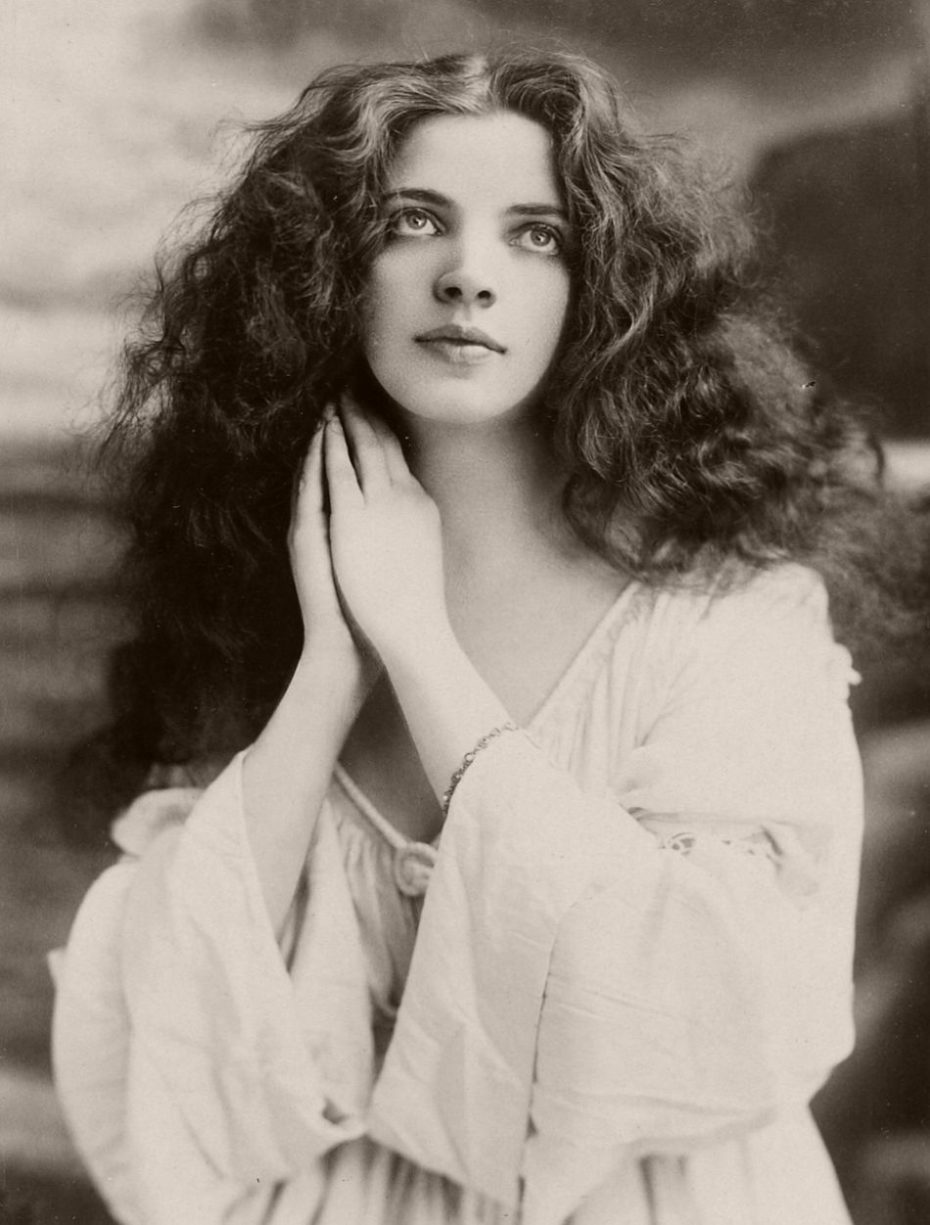
Known for her “impressionistic mood settings”, she made her own costumes and choreographed a daring production of Vision of Salomé, which opened in Vienna in 1906, based loosely on Oscar Wilde’s play, Salomé. Her version of the Dance of the Seven Veils attracted large audiences and suddenly, she was billed as “The Salomé Dancer”.
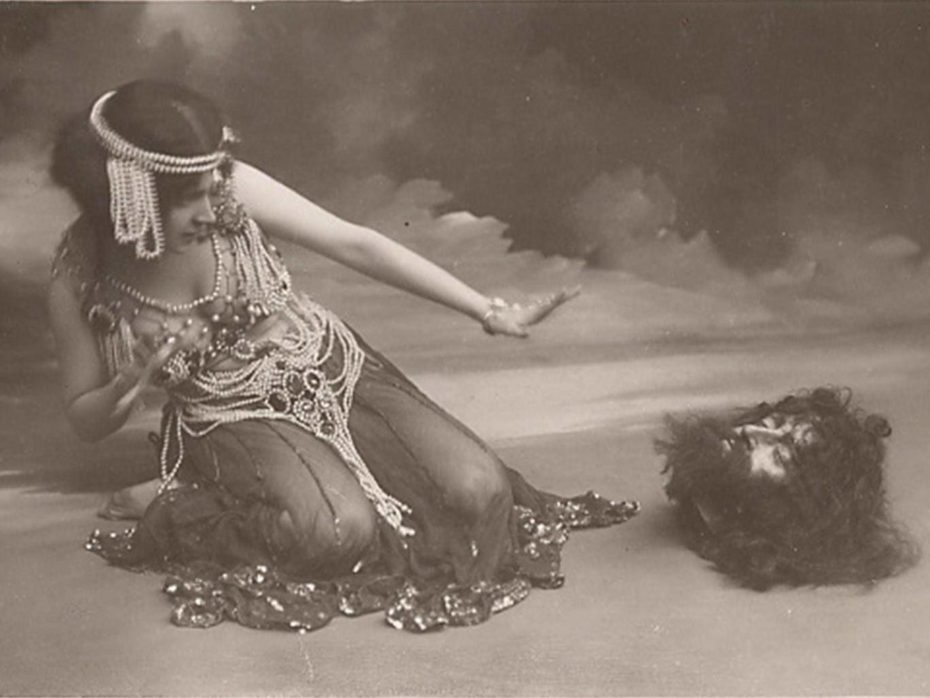
Allan began touring around the world, across continents from England to Africa to Asia and Australia. She wrote an autobiography in 1908 and starred as “Demetra” in the Hollywood silent film, The Rug Maker’s Daughter.
It was all going swimmingly for Maud until one night, an English inventor and member of Parliament, showed up to one of her performances….
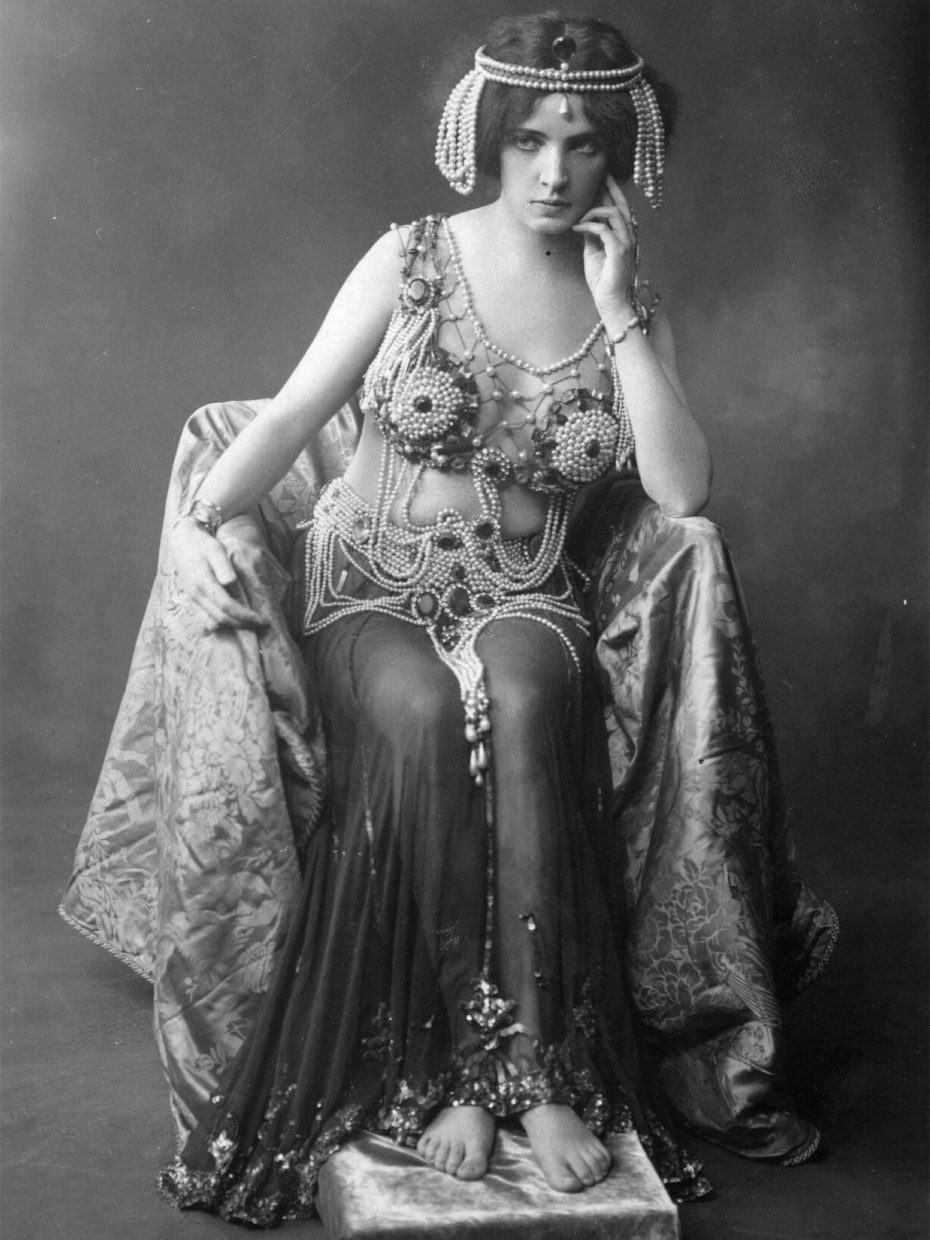
Noel Pemberton Billing was noted during the First World War for his extreme right-wing views and his homophobic conspiracy theories. In his numerous weekly journals, he preached that homosexuality was infiltrating and tainting English society, and that this was linked to German espionage. He claimed that the Germans were blackmailing “47,000 highly placed British perverts”; names inscribed in a certain “Berlin Black Book” kept by the Mbret of Albania. German agents were supposedly luring important men into homosexual acts, and even seducing their wives into blackmail. Billing went as far as to say “the most sacred secrets of the state were threatened in lesbian ecstasy”.
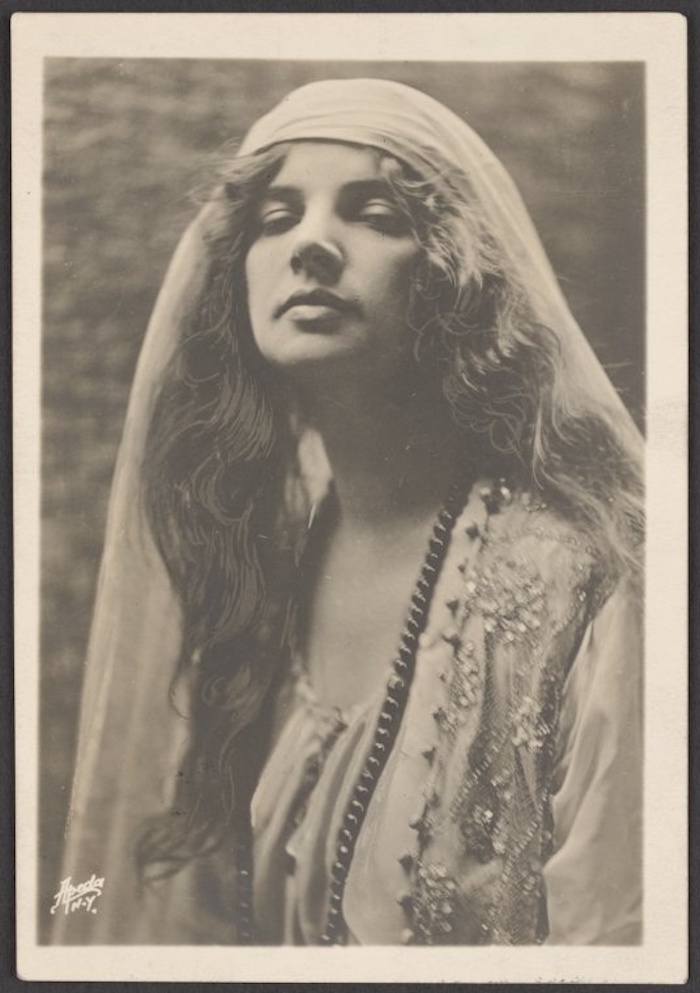
Noel had already gone after the literary circle of Oscar Wilde. He accused his literary executor, Robbie Ross, who supported homosexual poets and writers, of being a homosexual German conspirator. At this time, a ban on public performances of Oscar Wilde’s play was in place in England, and Allan’s Salomé dance made the perfect target for Noel homophonic campaign. Maud was also herself, a secretly gay woman.
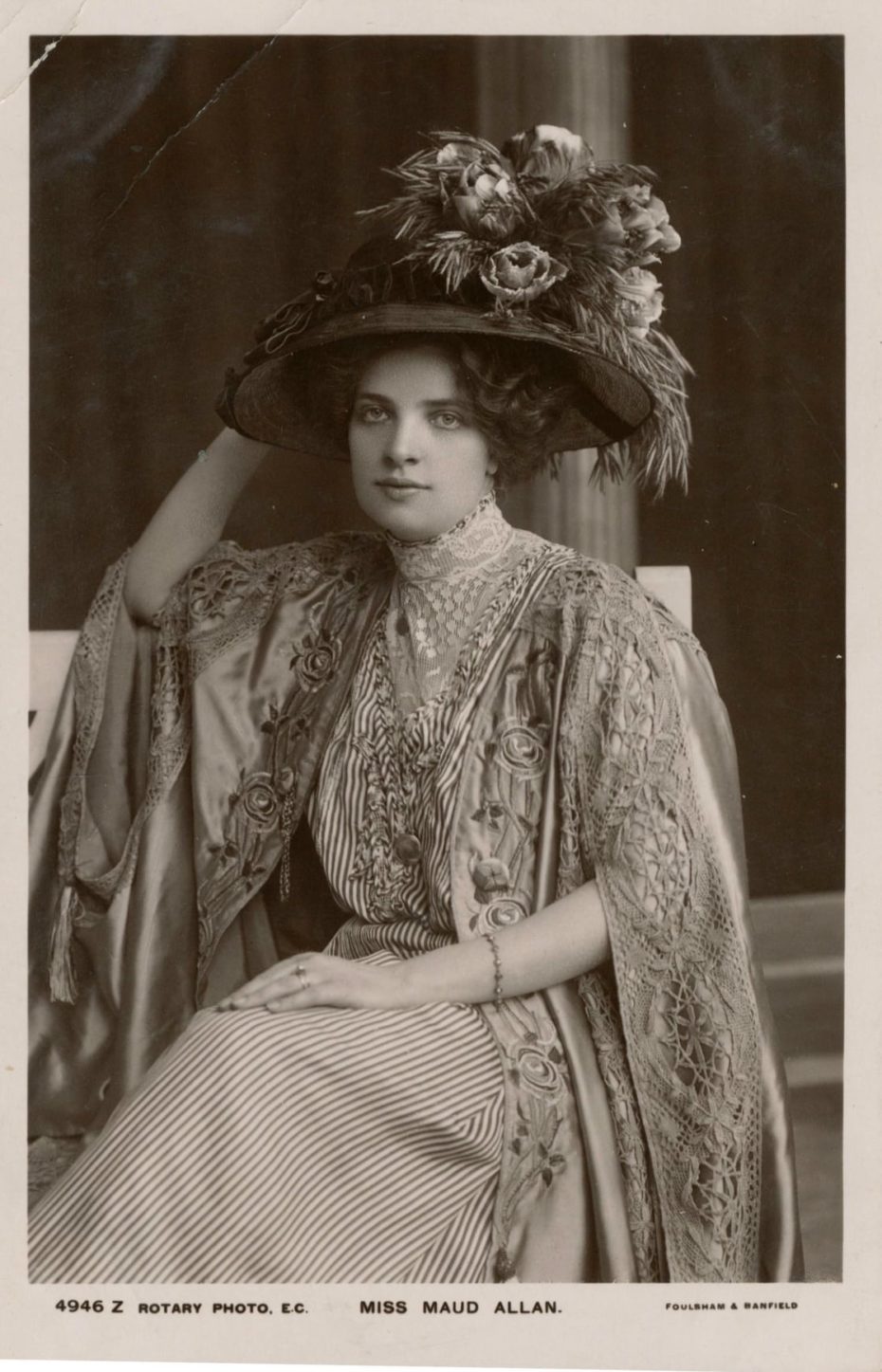
He wrote a scathing review of Allan’s private production of Salome organised by Ross, and published the article in his journal under the title “The Cult of the Clitoris”.
It began…
”To be a member of Maud Allan’s private performances in Oscar Wilde’s ‘Salome,’ one has to apply to a Miss Valetta, of 9, Duke Street, Adelphi W.C. If Scotland Yard were to seize the list of these members I have no doubt they would secure the names of several of the first 47,000.”
This very minor story, in which Billing accused Maud of being a lesbian associate of German wartime conspirators, became a sensation, implicating the government at the highest levels.
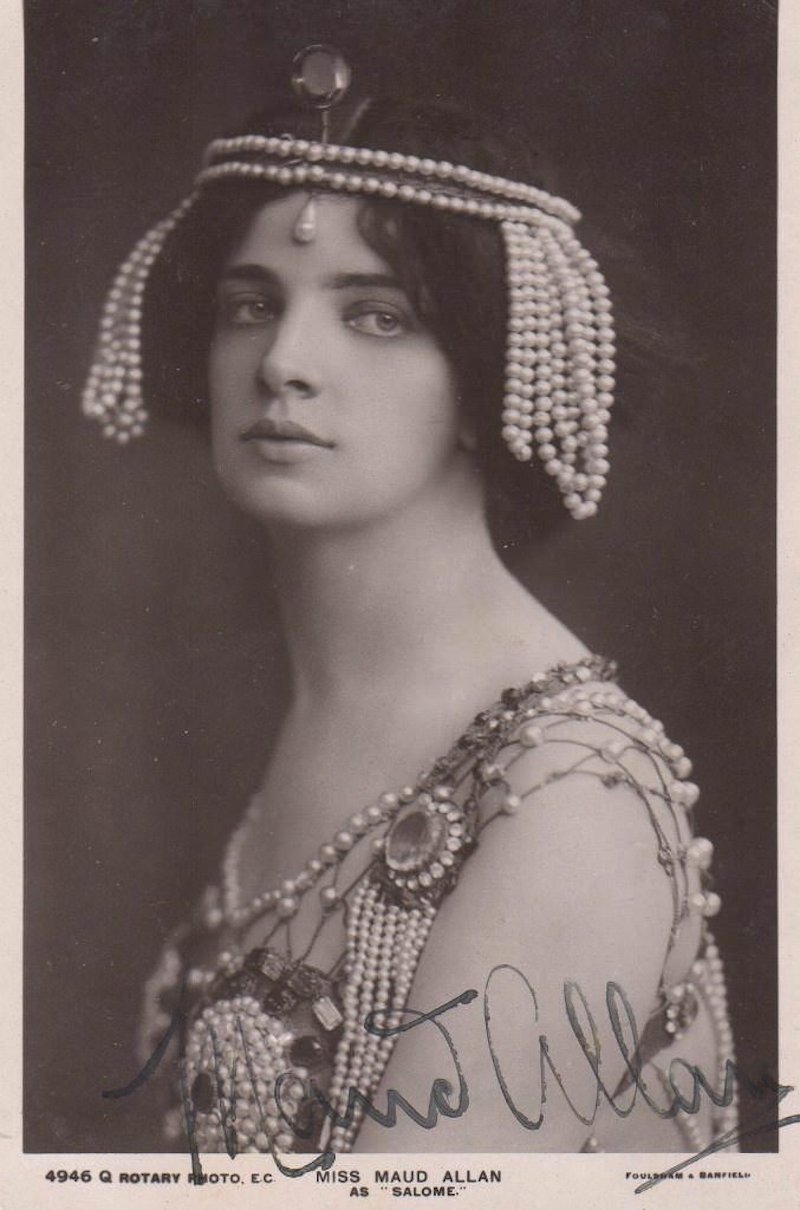
Allan sued Billing for publishing a defamatory article and for including obscenities within it. Don’t forget, this was a time when the word “clitoris” was never heard in polite society. During the trial, Billing defended himself, and took great pleasure in slandering Maud. Digging up anything he could find to shame her, he accused her of practising many of the sexually charged acts depicted or implied in Wilde’s writings herself, including necrophilia. Allan’s brother’s crimes were also cited to suggest there was a background of sexual insanity in her family.
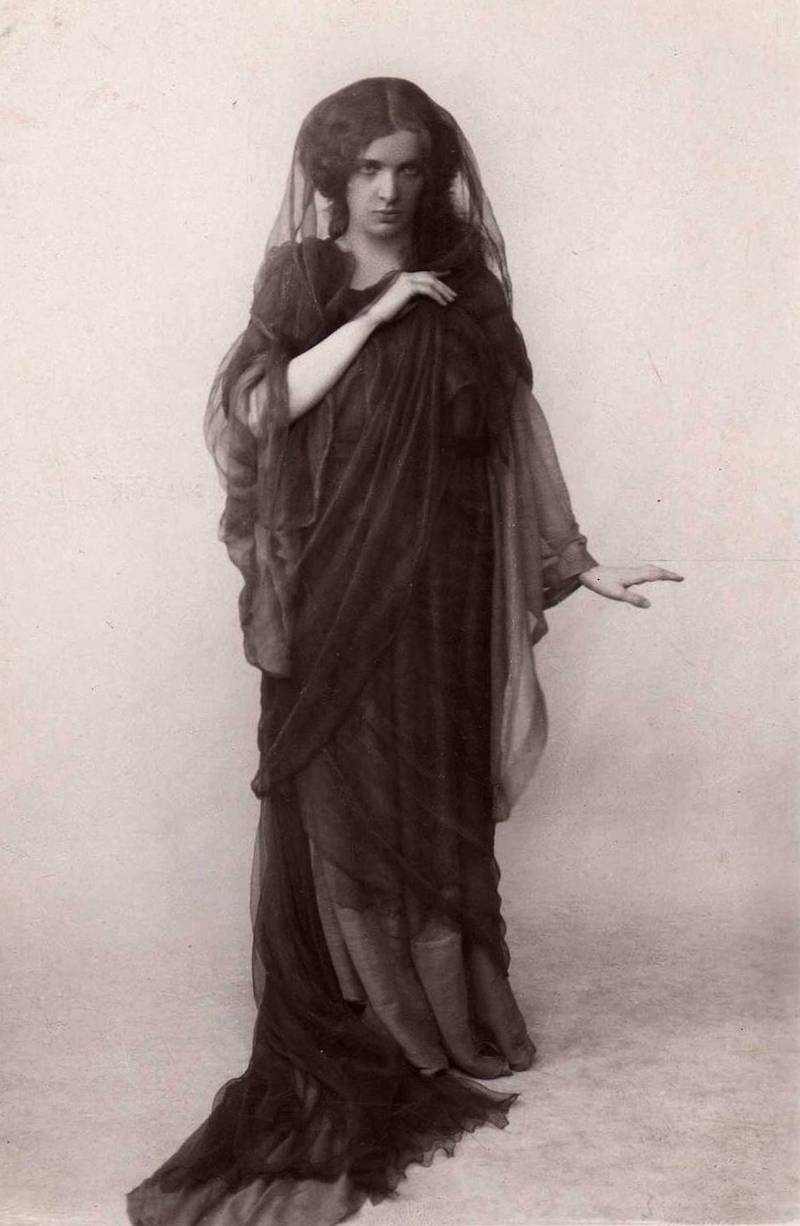
Lord Alfred Douglas, a former lover of Oscar Wilde, testified in Billing’s favour, as did Billing’s mistress Eileen Villiers-Stuart. As she stepped down from the witness stand, she sensationally claimed to have seen the “Black Book” and asserted in court that the judge, Charles Darling, was in the book.
Not surprisingly, Maud Allan lost the case. Billing was met by cheering crowds outside the courtroom and his victory generated enough popular publicity to get him re-elected to parliament in the next election.
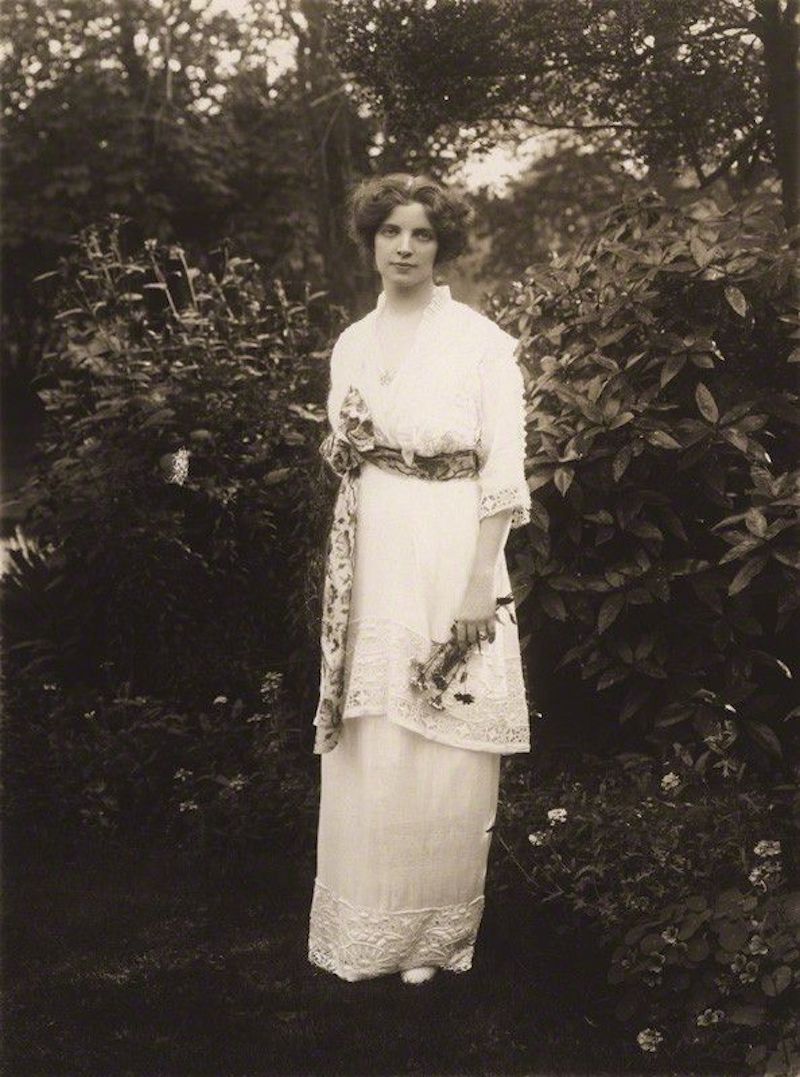
The bizarre trial reminds us that fake news is nothing new. After it ended, Allan continued to teach dance and live with her secretary and lover, Verna Aldrich. She died in Los Angeles in 1956.
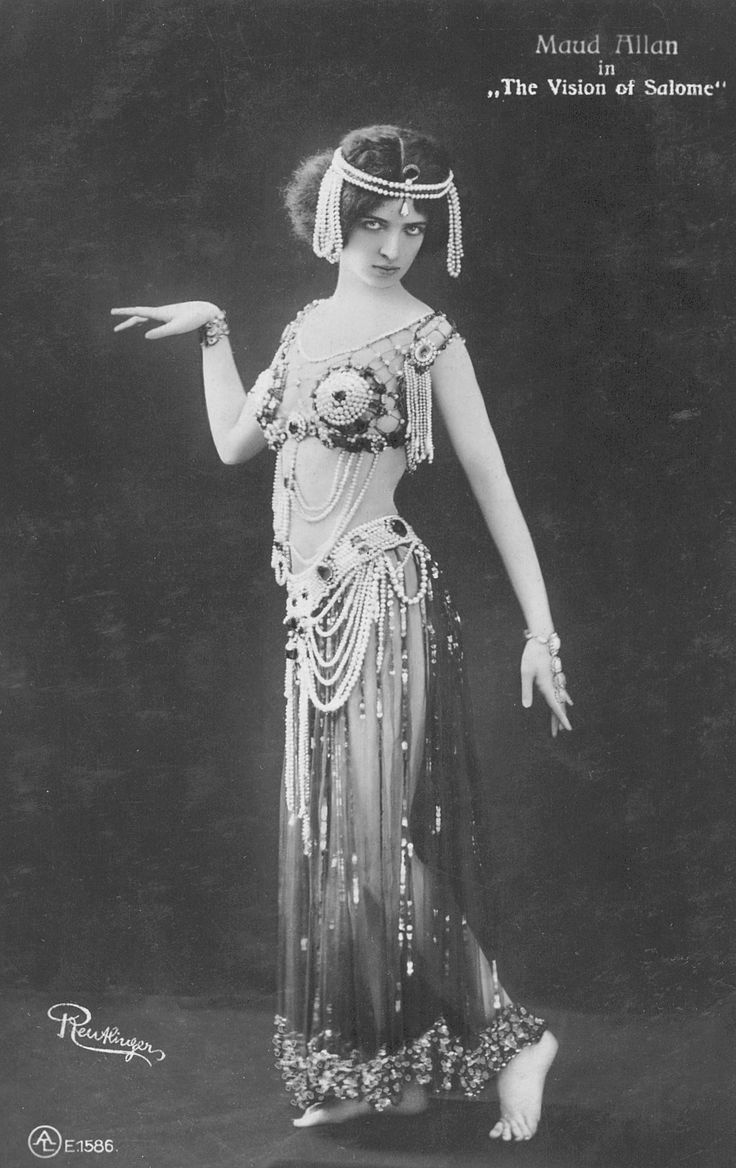
A century on from the case, Maud Allan strikes me as an early political pioneer for gay rights whose fight against criminalisation of homosexuality has been left out of history books. Unwilling to slink into the shadows of polite society, Allan’s story resonates today as women’s femininity and heterosexual non-conformity continue to be policed. So pass on her postcard if you care to share her tale…


